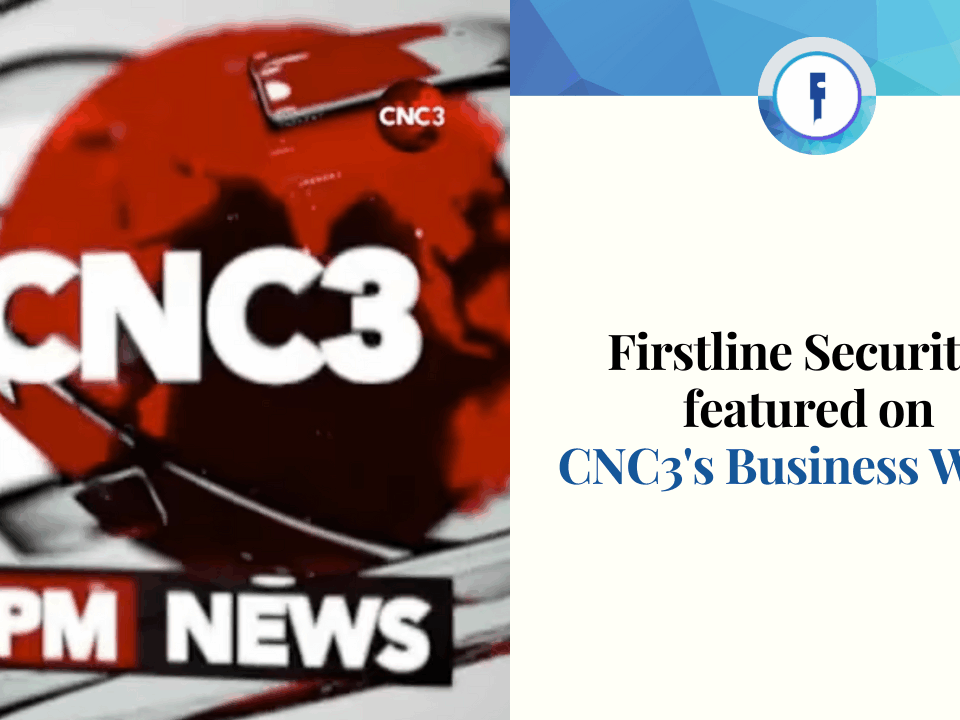INSIGHTS
THE 411 ON BUSINESS FRAUD – PART THREE


6 COMMON BUSINESS LOAN SCAMS
A Firstline Securities Limited Blog by: Mike
Let’s Dive In!
The last five years have witnessed an explosive growth in the online lending industry, particularly in Europe and the United States, and this has made it easier for many small and medium sized businesses to access funds that they need to make their business plans reality.
Because the internet has “shrunk the world” businesses in Trinidad and Tobago are not immune from business fraud that is initiated overseas.
The modern reality is that dishonest people are running business loan scams that capitalise on the one thing most entrepreneurs desire – quick access to affordable business loans – and they are willing to cross international borders using the internet to achieve their aims.
In this third blog entry we look at the 6 most common types of business loan scams.
We also look at a seventh scam which although isn’t exactly business fraud, it still qualifies as a scam nonetheless.
Advance fee scams
An advance fee scam is when a business or individual offers a business loan, but the business loan can only be secured by the payment of an upfront fee.
The upfront fee may be described or justified in a number of ways.
Common descriptions offered by scammers include: due-diligence fee, processing fee, administration fee, and loan insurance fee.
Whatever the description, the reality is the same. The scammer is asking you to pay them a fee before they can approve or advance the business loan to you.
If the scam is successful you pay the fee and the scammer disappears into the sunset.
It is worth noting here that while some lending institutions do charge advance fees you should be able to verify the bona fide nature of the institution via some simple due diligence. One way you can do this is to ask for third party references for deals that lending institution has completed in the past.
The peer lending scam
The first thing to say about peer lending is that there are a number of legitimate sites that offer peer lending.
So if this is an area that you are interested in two legitimate sites worth visiting include Funding Circle (www.fundera.com) and Prosper (www.prosper.com).
Peer to peer lending has become increasingly popular as a means to obtain business financing. The sites mentioned above work because they have a large pool of investors who can decide to buy a loan or a portion of a loan that meet their own investment objectives.
This means that instead of having a bank advance your business loan, a combination of individual investors (who almost certainly don’t know one another) act collectively to advance the loan through the peer to peer lending platform.
The success of sites like Fundera and Prosper has also attracted the inevitable scam artists.
Unscrupulous scam artists will offer what appears to be a peer to peer loan but usually ask for the payment of an upfront fee in order to secure or process the loan.
Peer to peer loan scams can be avoided by only using established sites similar to the two mentioned above.
The funding kit scam
Funding kit scams are a derivative of the loan broker scam mentioned below and work on the basis that many business owners are ignorant of loan processes or the availability of grants from government (and yes there are some grants available from the government in Trinidad and Tobago – see our blog entries on the national budgets of the Republic of Trinidad and Tobago for further details).
Under the funding kit scam the loan broker will tell you that obtaining a loan or government grant is a complicated process and you need to pay them in order to guide you through the whole process.
The reality is somewhat different.
The information that you need to obtain a business loan is usually available online and, in most instances, can be found through a search engine like google.
In short, there is no legitimate reason why you should pay for knowledge that is available elsewhere for free.
The credit repair or credit enhancement scam
Most new businesses find it hard to raise finance because of poor collateral (and in more established and sophisticated business markets, poor credit scores).
This in turn attracts the business loan scammer who will offer expertise and business tools that are designed (in the scammers own words) to “transform your business and your credit score or enhance the value of your collateral”.
That expertise and those tools come at a fee of course.
The reality is that there is no quick fix to repairing a poor credit rating or having inadequate collateral that makes it difficult to raise finance.
The ghost investor or business angel scam
Ghost investor or business angel scams usually start with a proposition that the person intending to scam you represents a large foundation, financial fund, or business angel with incredible wealth who is interested in funding your business.
There are many derivatives of the ghost investor or business angel scam.
Some of those derivatives are purely an attempt to steal data about your business (that can later be used in an identity theft scheme) while others are generics of the advance fee scam mentioned earlier in this entry.
The loan broker scam
Loan brokers are independent individuals or companies that offer a service to small and medium sized businesses.
The role of the loan broker is to obtain the right business loan for your business, prepare the necessary paperwork to apply for the loan, and connect you with the lenders who can provide finance.
In more sophisticated markets with greater choices choosing the right loan can have a significant impact on your business.
Ethical loan brokering services work on a commission-based model meaning that the broker is paid a certain percentage of the loan after the loan is advanced and some even take a fee from the lender rather than the business applying for the loan.
Treat any loan broker who asks for a payment upfront with scepticism and perform due diligence similar to that mentioned under the heading “Advanced Fee Scams” above.
The consultancy fee scam
Consultancy fee scams usually work in the following manner.
The consultant makes an approach to your business and advises that in order for you to secure a business loan you need their assistance.
In most instances, as well as offering a consultancy service designed to obtain you a loan, the consultant will also promise access to an “exclusive low interest” deal.
Usually that low interest deal doesn’t exist.
Again you should treat requests for the payment of a consultancy fee with scepticism and perform due diligence by requesting references.
Further blog entries in this series
In the fourth and final part of our series of blog entries on business fraud we complete the narrative by identifying 12 classic signs that you are about to be the subject of a business fraud.
Send us your comments – have you suffered from a business fraud?
Send us your comments – we’d love to read your opinion!
Firstline Securities Limited offers comprehensive coverage of local and international markets with many unique opportunities to put surplus cash to work either as your asset manager or investment advisor. Please contact us for more details at info@firstlinesecurities.com or at 868.628.1175. We can discuss your investment needs in detail and craft a portfolio that makes sense for you. We look forward to hearing from you.

